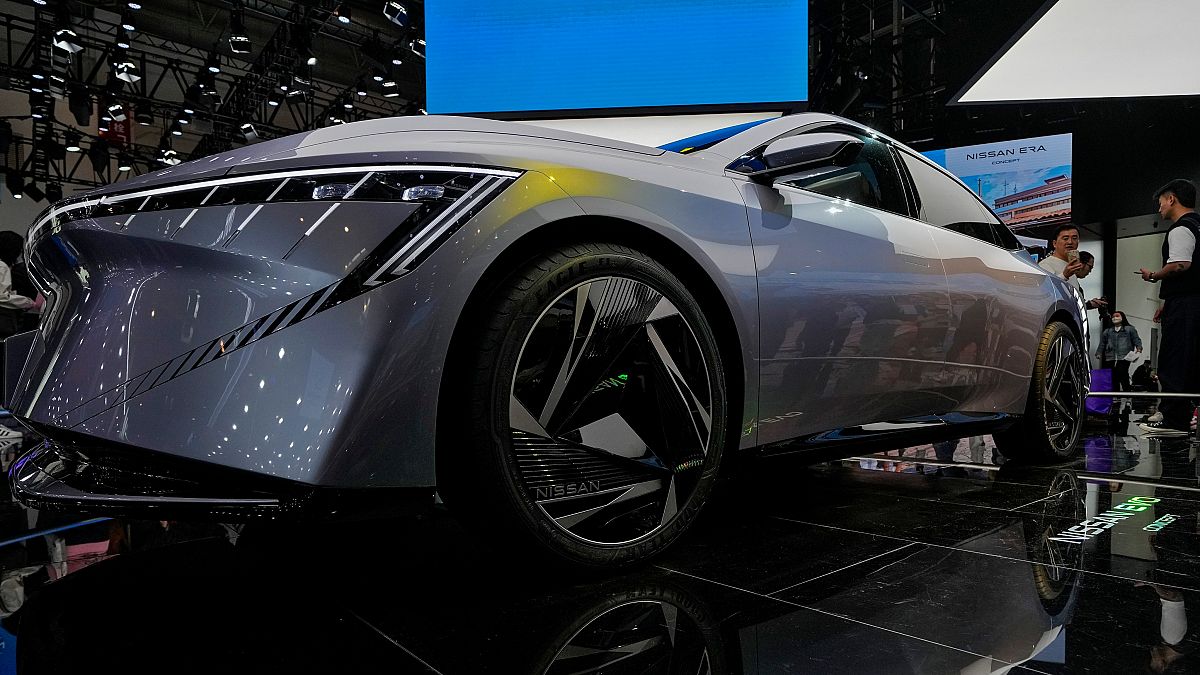23:04
As retaliation for the EU’s tariffs on Chinese electric vehicles, China could potentially slap duties on things like European pork and dairy products, as well as brandy and luxury goods.
The European Union (EU) has recently revealed that it has provisionally concluded that it would be applying tariffs to Chinese electric vehicles (EVs) of up to 38.1%. This is in order to curb the flood of much cheaper Chinese electric vehicles that are being imported into the EU, which in turn is posing a competition threat to European-made EVs.
The main Chinese automakers which could potentially face increased tariffs are Geely, which could see tariffs of 20%, BYD, at 17.4% and SAIC, at 38.1%.
Other Chinese EV producers are also likely to see tariffs range between 21% to 38.1%, depending on whether or not they cooperated with EU investigations regarding this matter.
Apart from China’s local EV manufacturers, a significant proportion of the EVs imported into China also come from companies like BMW and Tesla, which have set up massive factories in China. Their aims is to take advantage of the cheaper production costs and subsidies in order to be able to offer their vehicles at competitive prices.
These tariffs are pending the conclusion of talks with the Chinese authorities, but are likely to come into effect from 4 July. The duties are expected to be more or less of the same amount as the current government subsidies that China is believed to be offering these automakers.
One of the main reasons for this move is due to the EU alleging that the Chinese government is providing unfair subsidies to several manufacturers, thus allowing them to sell at considerably cheaper prices in Europe.
However, this move by the EU has led to increased concerns that China may retaliate by implementing its own tariffs on some European sectors, which could pose a threat to the EU’s economy. If this happens, it could potentially lead to a full-blown EU-China trade war.
China has already hit back at the EU, calling these tariffs an act of protectionism, and urging it to reconsider. It has also said that it would be doing everything in its power to protect its own interests and car makers, should these increased duties be introduced.
Chinese foreign ministry spokesperson Lin Jian said at a press briefing, as reported by Reuters, “We urge the EU to listen carefully to the objective and rational voices from all walks of life, immediately correct its wrong practices, stop politicising economic and trade issues, and properly handle economic and trade frictions through dialogue and consultation.”
Regarding the possibility of a full-blown trade war with China, Jens Eskelund, the president of the European Chamber of Commerce in China said, as reported by Associated Press, “It’s a little bit like seeing a slow motion traffic accident unfolding. The accident has not happened yet and it is still possible to find an off-ramp. It is getting urgent.”
Which European sectors could see retaliatory tariffs from China?
Coming to the sectors which are most likely to see retaliatory tariffs from China, should the EU go forward with the EV duties, brandy and other alcoholic beverages could be one of the most impacted.
This is due to the fact that China has already started an anti-dumping investigation into brandy imported from the EU, back in March, when the EU had dropped hints about potential EV tariffs. The main companies impacted by the brandy investigation have been Pernod Ricard and Remy Cointreau.
The EU’s food industry is another sector that could potentially be disrupted. China has already known for retaliating with food tariffs, as was seen when China banned seafood imports from Japan a few years back due to a maritime waters disputes and Japan’s strategy of disposing of treated nuclear wastewater into the sea.
As such, EU food companies such as pork and dairy producers are on edge at the moment, following reports of Chinese domestic food companies asking for probes into some EU food imports. These are likely to be either anti-dumping or anti-subsidy investigations, which even if disproved down the line, could still lead to trade being halted for a long time while the investigation is ongoing.
However, this could also end up harming China itself, as the EU was the country’s second-biggest import partner in 2023, with China importing about 36% of its dairy imports from the bloc last year. Some of the most frequently imported products were cream, whey powder and fresh milk.
If a trade war does escalate, New Zealand, which is currently China’s biggest dairy products supplier could potentially be poised to step into the gap. Australia, another significant import partner, could also stand to benefit.
The EU’s luxury products sector could also be hit, with China being a major market for products such as handbags, perfumes, shoes, clothes and other accessories, from brands such as LVMH, Gucci, Prada and more. European watches and jewellery also have strong demand in China.
With several luxury goods companies already facing falling demand post-pandemic, due to the cost of living and higher interest rates, this could potentially derail them further.
Similarly, China is a key component in the critical minerals supply chain globally, and has already shown that it is more than willing to use this sector as a tool in trade wars. This was seen when China stopped the export of rare earth minerals to Japan, due to the two countries disagreeing over the Senkaku Islands.
If things with the EU heat up, China could also do the same to the EU, which could prove to be disastrous to the continent’s green transition goals. The EU has also recently launched an anti-dumping investigation on Chinese biofuels being imported into the bloc.














